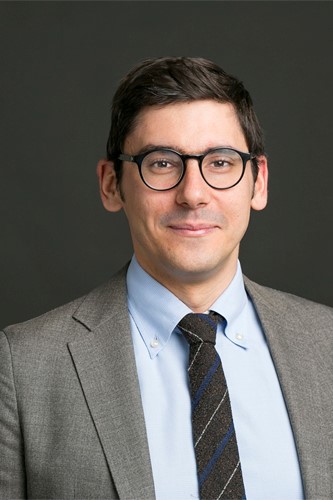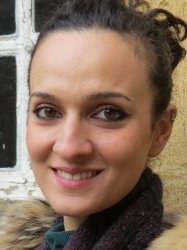Studying at the University of Verona
Here you can find information on the organisational aspects of the Programme, lecture timetables, learning activities and useful contact details for your time at the University, from enrolment to graduation.
Academic calendar
The academic calendar shows the deadlines and scheduled events that are relevant to students, teaching and technical-administrative staff of the University. Public holidays and University closures are also indicated. The academic year normally begins on 1 October each year and ends on 30 September of the following year.
Course calendar
The Academic Calendar sets out the degree programme lecture and exam timetables, as well as the relevant university closure dates..
| Period | From | To |
|---|---|---|
| primo semestre lauree magistrali | Oct 1, 2018 | Dec 21, 2018 |
| secondo semestre lauree magistrali | Feb 25, 2019 | May 31, 2019 |
| Session | From | To |
|---|---|---|
| sessione invernale lauree magistrali | Jan 7, 2019 | Feb 22, 2019 |
| sessione estiva lauree magistrali | May 27, 2019 | Jul 5, 2019 |
| Sessione autunnale | Aug 26, 2019 | Sep 13, 2019 |
| Session | From | To |
|---|---|---|
| Sessione autunnale (validità a.a. 2017/18) | Dec 6, 2018 | Dec 7, 2018 |
| Sessione invernale (validità a.a. 2017/18) | Apr 3, 2019 | Apr 5, 2019 |
| Sessione estiva (validità a.a. 2018/19) | Sep 10, 2019 | Sep 11, 2019 |
| Period | From | To |
|---|---|---|
| Festa di Ognissanti | Nov 1, 2018 | Nov 1, 2018 |
| Festa dell’Immacolata | Dec 8, 2018 | Dec 8, 2018 |
| Vacanze di Natale | Dec 22, 2018 | Jan 6, 2019 |
| Vacanze di Pasqua | Apr 19, 2019 | Apr 23, 2019 |
| Festa della liberazione | Apr 25, 2019 | Apr 25, 2019 |
| Festa del lavoro | May 1, 2019 | May 1, 2019 |
| Festa del Santo Patrono - S. Zeno | May 21, 2019 | May 21, 2019 |
| Attività sospese (vacanze estive) | Aug 5, 2019 | Aug 23, 2019 |
Exam calendar
Exam dates and rounds are managed by the relevant Economics Teaching and Student Services Unit.
To view all the exam sessions available, please use the Exam dashboard on ESSE3.
If you forgot your login details or have problems logging in, please contact the relevant IT HelpDesk, or check the login details recovery web page.
Academic staff
 martina.menon@univr.it
martina.menon@univr.it

Taschini Luca
 luca.taschini@univr.it
luca.taschini@univr.it
 045 802 8736
045 802 8736
Study Plan
The Study Plan includes all modules, teaching and learning activities that each student will need to undertake during their time at the University.
Please select your Study Plan based on your enrollment year.
1° Year
| Modules | Credits | TAF | SSD |
|---|
2° Year activated in the A.Y. 2019/2020
| Modules | Credits | TAF | SSD |
|---|
| Modules | Credits | TAF | SSD |
|---|
| Modules | Credits | TAF | SSD |
|---|
| Modules | Credits | TAF | SSD |
|---|
Legend | Type of training activity (TTA)
TAF (Type of Educational Activity) All courses and activities are classified into different types of educational activities, indicated by a letter.
International economic law (2018/2019)
Teaching code
4S02468
Teacher
Coordinator
Credits
6
Language
English
Scientific Disciplinary Sector (SSD)
IUS/13 - INTERNATIONAL LAW
Period
secondo semestre lauree magistrali dal Feb 25, 2019 al May 31, 2019.
Learning outcomes
The course deals with the international regulation of trade and investment in the framework of the globalized world economy at the beginning of the second Millennium. The course is in two parts. In the first part, the focus is on the law of the World Trade Organization (WTO) as the main multilateral regulation of trade. The course concentrates on the origins of the multilateral commercial system (ITO and GATT 1947), on the WTO institutional framework including the dispute settlement solution system, on issues raised by the current Doha Development Round and on the main sectorial agreements (on goods, including the GATT disciplines, GATS on services, TRIPS on intellectual property). The main subjects are analyzed through case studies subject to Panels and the Appeals Body of the WTO. The second part examines the substantive standards for the protection of foreign investment and the related dispute settlement mechanism under the relevant international treaties (BITs and FTAs). The role of private players is also examined as well as the importance of international discipline in economic choices, including the relevance of the WTO law and international investment law (IIL) in the EU legal system based on the European case law and in the United Kingdom after Brexit. At the end of the course students should be able to: - outline and explain the main principles that apply in the field of international trade, - evaluate and compare investment protection standards and procedures across countries.
Program
The introductory part of the course is designed to provide students with the conceptual tools to understand the legal foundations of the contemporary world economy. It examines international “subjects” (States, international organizations and private actors) and sources (customs, treaties and their implementation in national legal orders).
The first part of the course examines the roles of international economic institutions in the global and regional contexts. Particular emphasis is placed on the WTO and will focus on general issues including: Its foundation (Multilateralism, sectorial approach and regionalism in the governance of the world economy; From GATT 1947 to the WTO: the Uruguay Round Results); The WTO institutional framework; The Dispute Settlement System; Basic issues under GATT 1994; non discrimination and MFN treatment; Dumping, Subsidies, Safeguards; The WTO and the protection of non-trade interests: exceptions, environment, human rights and other public policy concerns; The challenge of economic regionalism to the multilateral system; European law and the WTO: what protection for private parties. In the second part, the course covers the fundamental principles of international investment law: substantive standards of protection and the settlement of disputes under existing ISDS and the proposed ICS and IMC. In this part, the course will benefit from the participation of an international guest lecturer, with expertise in international investment law.
The teaching method combines lectures with class presentations and class discussion on specific subjects and case studies on the basis of distributed materials posted during the course.
Van den Bossche/Prévost, Essentials of WTO Law, Cambridge University Press, 2016 or Lesterm Mercurio, Davies, World Trade Law. Text, Materials and Commentary, 2nd ed., Hart Publishing, 2012.
| Author | Title | Publishing house | Year | ISBN | Notes |
|---|---|---|---|---|---|
| Van den Bossche/Prévost | Essentials of WTO Law | Cambridge University Press | 2016 |
Examination Methods
The examination aims at ascertaining the student's acquired capacity of legal analysis of relevant international treaties and cases. It shall consist of a written test with three open questions.
Relevant WTO Agreements and Panels and Appellate Body Reports and other materials will made available on e-learning during the course.
As part of their final evaluation, students will be given the opportunity to prepare a class paper based on a case in-class presentation as well as a written essay.
Type D and Type F activities
Career prospects
Module/Programme news
News for students
There you will find information, resources and services useful during your time at the University (Student’s exam record, your study plan on ESSE3, Distance Learning courses, university email account, office forms, administrative procedures, etc.). You can log into MyUnivr with your GIA login details: only in this way will you be able to receive notification of all the notices from your teachers and your secretariat via email and soon also via the Univr app.
Linguistic training CLA
Gestione carriere
Student login and resources
Graduation
List of theses and work experience proposals
| theses proposals | Research area |
|---|---|
| La (cattiva) gestione dei fondi comunitari in Italia | ECONOMICS - ECONOMICS |
| Analisi dell'Impatto della Regolamentazione: potenziale e applicazioni concrete | Various topics |
| Costs and benefits of the new Turin-Lyon railway line | Various topics |
| Costs and benefits of new systems for speed control on italian motorways | Various topics |
| Contingent valuation for the quality of hospital characteristics | Various topics |
| Evaluating occupational impacts of large investment projects | Various topics |
Internships
Admission policy
ADMISSION POLICY
The admission procedure for international students is explained in details at:
www.magecverona.it/admission-benefits/
For further information please contact magec@dse.univr.it
Additional information
Additional information
For further information visit the program website, http://magec.dse.univr.it, or send an email at magec@dse.univr.it.




























